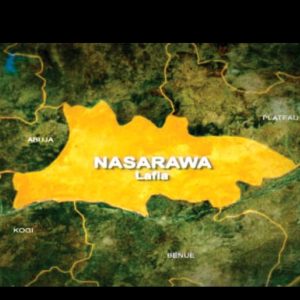Lenders and industry leaders have raised concerns that the high-risk legacy debts of Distribution Companies (DisCos) and unclear regulatory frameworks are significant barriers to the financing and development of new grid-connected power projects in Nigeria.
Speaking during panel sessions at the recently held Lagos Chamber of Commerce and Industry (LCCI) Power Conference in Lagos, Senior Vice President at Stanbic IBTC Infrastructure Fund, Jumoke Ayo-Famisa explained the cautious approach lenders take when evaluating embedded or grid-scale power projects.
Speaking in the context of new grid-connected power plants, she emphasized the critical importance of clarity around off-takers and contract structures.
“If someone approaches us today with an embedded power project, the first question is always: Who is the off-taker? Who are you signing the contract with?” Ayo-Famisa said. “In Lagos State, for example, there is Eko Electricity and Excel Distribution Company Limited. Knowing this is important,” she said.
She highlighted the nuances in contract types, whether the developer is responsible just for generation or for the full chain, including distribution and collection. “Collection is very important because you would be wondering, ‘is the cash going to be commingled with whatever is happening at the major DISCO level, is it ring-fenced, what is the cash flow waterfall,” she added.
Ayo-Famisa pointed out that the major stumbling block remains the “high leverage in the books of the legacy DisCos.” Incoming project financiers want to be confident that their cash flows won’t be exposed to the financial risks of these indebted entities. This makes clarity on contractual relationships and cash flow mechanisms a top priority.
She said tariff clarity also remains a challenge. According to her, “Some states have come out to clearly say that there is no subsidy; some are saying they are exploring solutions for the lower income segments. So, the clarity would be on who is responsible for the tariff, is this sponsored?, Can they change tariffs?, In terms of if their cost rises, they can pass it on, or they have to wait for the regulator.
“Unlike, you know, what you find in the willing seller-willing buyer, where they negotiate and agree on their prices. Now they are going into grid, there is Band A, Band B, if my power goes into, say, Ikeja Electric, or I have a contract with them, “am I commingled with whatever is happening across their multiple bands?”
Calls for more decentralisation in energy sector
Supporting this view, Wola Joseph Condotti, Group Managing Director and CEO of West Power & Gas Limited, stressed the dual-edged nature of decentralization in the power sector.
“Of course, decentralization brings us closer to the people as the jurisdiction is now clear. You also know that your tariff would be reflective of the type of people living in that environment. You cannot take the Lagos tariff to Zamfara, and this is what has been happening before now in the power sector. So, decentralization brings about a more customized solution to issues you find on the ground.
“Some of the issues I see are those that bother on capacity. It was a centrally run system that had 11 DISCOs. Of the 11 DISCOs, I think there are 3 or 4 of us today that are surviving or alive, if I may put it that way. If you go to electricity generation companies, they are doing much better,” she said.
Condotti highlighted regulatory overlaps as another complication, especially when power generation or distribution crosses state lines.
She said, “Investors would definitely have a problem. Say if you have a plant in Ogun State supplying power to another state, say Lagos State; you are automatically regulated by NERC. But the truth is that the state regulator of Ogun State and Lagos State wants you to comply with certain regulatory standards.”
More insights
The consensus among financiers and power sector executives is that addressing legacy DisCo debt, improving contractual transparency, and streamlining regulatory frameworks are critical to unlocking private investment in Nigeria’s power infrastructure.
With growing demand for reliable electricity and an urgent need for infrastructure expansion, the ability to navigate these complex financial and regulatory landscapes will determine the pace at which new grid-connected power projects can be developed.
What you should know
In June 2023, President Bola Tinubu signed the Electricity Act 2023 into law, repealing the Electric Power Sector Reform Act, 2005.
This Act decentralizes the power sector, giving states authority to regulate electricity within their territories.
Twenty-three states have already passed enabling laws to establish their electricity markets.
Stay ahead with the latest updates!
Join The Podium Media on WhatsApp for real-time news alerts, breaking stories, and exclusive content delivered straight to your phone. Don’t miss a headline — subscribe now!
Chat with Us on WhatsApp





